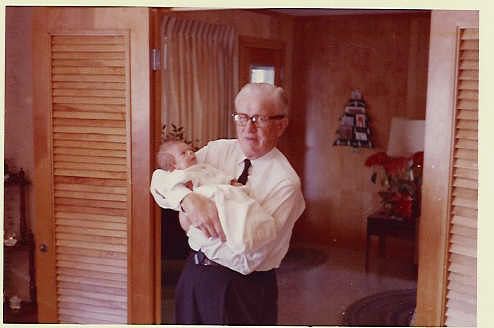Dear Etiquetteer: Does Perfect Propriety require one to remove one's glove when shaking hands with another? It is my practice, but it seems inconsistent among the public at large. Also, is gender a consideration here?
Dear Shaking:
In the play Divine Sister, the Mother Superior reportedly said "We must never forget that we are on the brink of a period of great social change - and we must do everything in our power to stop it." Public health is playing a role in how people shake hands - or don't - and Etiquetteer is still trying to consider the most Perfectly Proper Compromise.
Traditionally, a gentleman removes his glove to shake hands, but a lady does not. A lady also has the privilege of not shaking hands if she doesn't choose to. Why? Etiquetteer suspects this comes from the long-standing belief that a gentleman doesn't force his attentions on a lady. So a gentleman doesn't offer his hand to a lady first; she offers hers, or doesn't.
The Book of Good Manners: A Guide to Polite Usage for All Social Functions, by Walter Cox Green (1922), elaborates a bit on ladies and gentlemen shaking hands with gloves: "A man with hands gloved should never shake hands with a woman without an apology for so doing, unless she likewise wears gloves. A sudden meeting, etc., may make a hand-shaking in gloves unavoidable. Unless the other party is also gloved, a man should say 'Please excuse my glove.'" No wonder people gave up on gloves - which is very sad indeed.
By 1953, however, Esquire Etiquette: A Guide to Business, Sports, and Social Conduct, by the "Editors of Esquire Magazine," advised that "Excuse my glove" had become old-fashioned. "That one belongs with 'After you, Alphonse,' and there is no comfortable response to it." [Emphasis Etiquetteer's.] Etiquetteer asks now, can't we just have our manners and use them without calling attention to them while in action? Besides the fact that there are more interesting things to talk about, there is always the likelihood that someone will then be made uncomfortable by suspecting that they are behaving incorrectly.
In this century, there seems to be no "comfortable response" to the phrase "I don't shake hands." Universally accepted as a greeting of acceptance and friendliness for centuries, the relatively recent incursion from Those Who Fear Germs still leaves a lingering Aura of Rejection. Once, not accepting a hand offered by one man to another would give offense*, or at least give the impression that one's further acquaintance was not sought. When meeting strangers for the first time, it leaves an unwelcoming impression.
Etiquetteer has to wonder if the time has come for Westerners to adopt the Far Eastern custom of bowing instead of shaking hands to accommodate (Etiquetteer does not say appease) Those Who Fear Germs. Bowing is quite dignified, does not need to appear subservient, shows respect to the other party, and does not require either to touch at any point. Indeed, not long ago Etiquetteer was obliged to dine out with a group of close friends while very clearly in the early stages of a Head Cold. Fearing undue exposure of others, Etiquetteer did what was possible to limit physical contact by bowing over a martini . . .
Debate over this issue - how to show respect and not give offense while also maintaining one's microbial integrity - will surely continue, just as scientific research does about what, exactly, we communicate when shaking hands.
*Sometimes, of course, offense is exactly what someone wants to convey by refusing to shake hands. Etiquetteer could show you some scars from such encounters . . .




